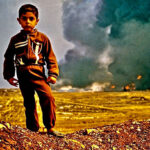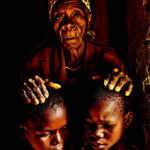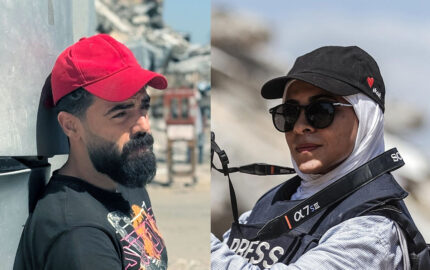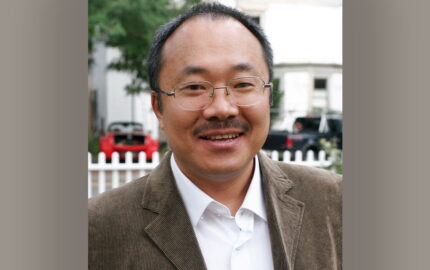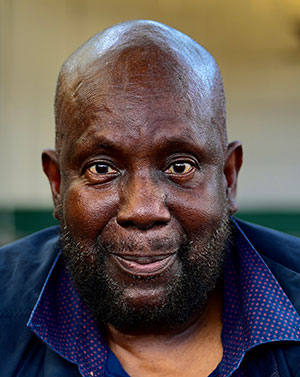
Cambridge, Mass.— Photojournalist Eli Reed has been selected as winner of the 2021 I.F. Stone Medal for Journalistic Independence, presented by the Nieman Foundation for Journalism at Harvard University.
For half a century, Reed’s photography has captured the face of racism and documented human suffering in conflicts around the world. He has photographed deprivation from Beirut to Central America, and filmed the Lost Boys of Sudan, young men Reed described as “living through life-threatening hell.”
In 1986, his images chronicled the coup against Haitian President “Baby Doc” Duvalier; in 1989, he captured the U.S. military action that led to the downfall of Panamanian leader Manuel Noriega; and in 1992, he documented political upheaval in Kinshasa, Zaire. In the United States, his eyes have been focused on the evils of racism, his photographs exposing truth in ways that words cannot always express. His long career of documentary work culminated in his much-acclaimed photographic record of the aftermath of George Floyd’s 2020 murder in Minneapolis and Floyd’s funeral in Houston, Texas.
“There is a depth to Reed’s reporting that organized strings of words cannot reach,” said I.F. Stone Medal jury chair Ricardo Sandoval-Palos, the public editor at PBS. “Photography as investigative journalism combines art and science as an effective tool to engage the public and deliver the truth. It was our unanimous decision that Reed’s incisive work has done visually what I.F. Stone did with words over so many years. And like Stone, Reed is no detached observer. He is fiercely independent, a passionate seeker of truth and dedicated to fighting for social justice.”
Nieman Foundation curator Ann Marie Lipinski added: “For five decades, Eli Reed has been using his camera to document urgent and difficult stories and challenge conventional thinking. From Zaire to George Floyd’s Minneapolis, he has taken us places we might never have seen or asked us to see stories in new ways. Eli is one of our greatest photographers, a man who has been described as “walking history himself,” and someone whose journalistic focus has been ahead of its time for a long time. This award is richly deserved.”
A life of visual storytelling
After an early career as a newspaper photographer in cities including San Francisco and Detroit, Reed became an independent documentarian. A longtime member of Magnum Photos, he has been a clinical professor of photojournalism at the University of Texas at Austin since 2005 and is a Sony Artisan of Imagery. He was a 1983 Nieman Fellow at Harvard University. In April 2021, Reed won the National Press Photographers Association’s highest honor, the Joseph A. Sprague Memorial Award for his body of work.
He has published several comprehensive volumes of his work. “Beirut, City of Regrets,” which was written by Fouad Ajami and illustrated by Reed, came out in 1988 and delves into the life of residents of Lebanon during the country’s civil war. “Black in America,” published in 1997, focuses on the lives of African Americans and features photographs taken during a 16-year period from the 1970s through the end of the 1990s, accompanied by text and poetry written by Reed. “A Long Walk Home” contains over 250 images that span the full range of his subjects and his evolution as a photographer.
“I so love the passion for doing good and the dedication to telling the truth that permeates Eli Reed’s half century of advocacy photojournalism,” said I.F. Stone Medal jury member Myra MacPherson, author of the 2006 biography “All Governments Lie: The Life and Times of Rebel Journalist I.F. Stone. “Reed and I.F. Stone are indeed kindred spirits.”
In addition to Sandoval-Palos and MacPherson, other members of the I.F. Stone Medal selection committee are Jasmine Brown, a senior producer in the race and culture unit at ABC News’ “World News Tonight with David Muir”; Phillip W. d. Martin, a senior investigative reporter for WGBH News; Michael Riley, an investigative reporter for Bloomberg News and Businessweek magazine; and Bernice Yeung, staff writer at ProPublica who covers labor and employment.
“I am inspired by the arc of Eli Reed's career as an independent journalist, from his coverage of the human impact of war to the tenacity and care with which he has documented Black life in America,” Yeung said. “His coverage of George Floyd has been especially poignant, given his long-standing focus on racism in America. Reed is clearly a trailblazer in the profession, and I appreciate that he seeks to deploy his journalism toward social justice and the public interest.”
Yeung added that in a recent profile, Reed described his efforts to counter racism through his work: “Don’t just sit there and accept it. Speak through your work. Say something.”
Established in 2008, the I.F. Stone Medal honors the life of investigative journalist I.F. Stone and is presented annually by the Nieman Foundation for Journalism at Harvard to a journalist or journalists whose work captures the spirit of journalistic independence, integrity and courage that characterized I.F. Stone’s Weekly, published from 1953 to 1971. For more information about I.F. Stone, visit www.ifstone.org.
The Nieman Foundation for Journalism at Harvard educates leaders in journalism and elevates the standards of the profession through special programs that convene scholars and experts in all fields. More than 1,600 journalists from 99 countries have been awarded Nieman Fellowships since 1938. The foundation’s other initiatives include Nieman Reports, a website and print magazine that covers thought leadership in journalism; Nieman Lab, a website that reports on the future of news, innovation and best practices in the digital media age; and Nieman Storyboard, a website that showcases exceptional narrative journalism and explores the future of nonfiction storytelling.







